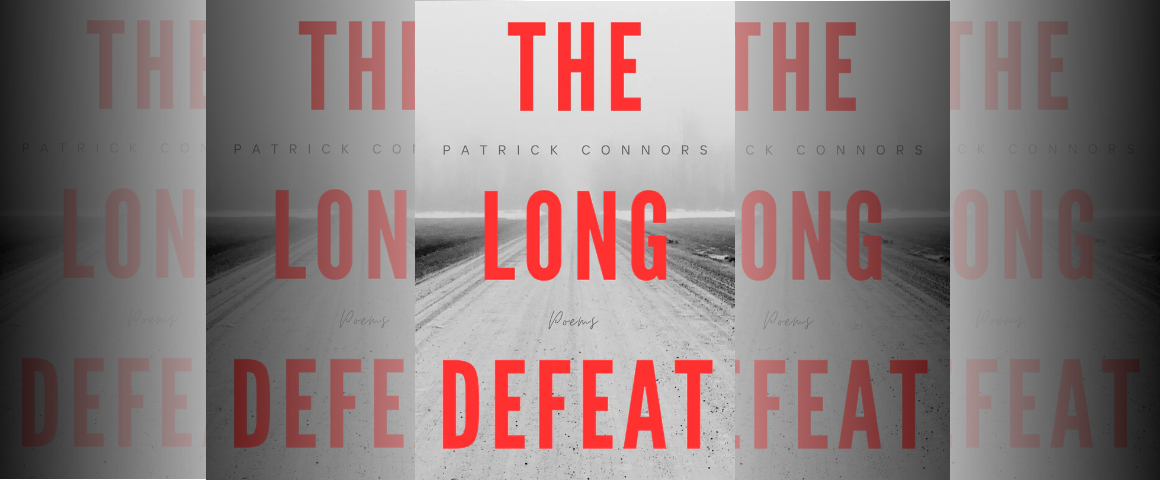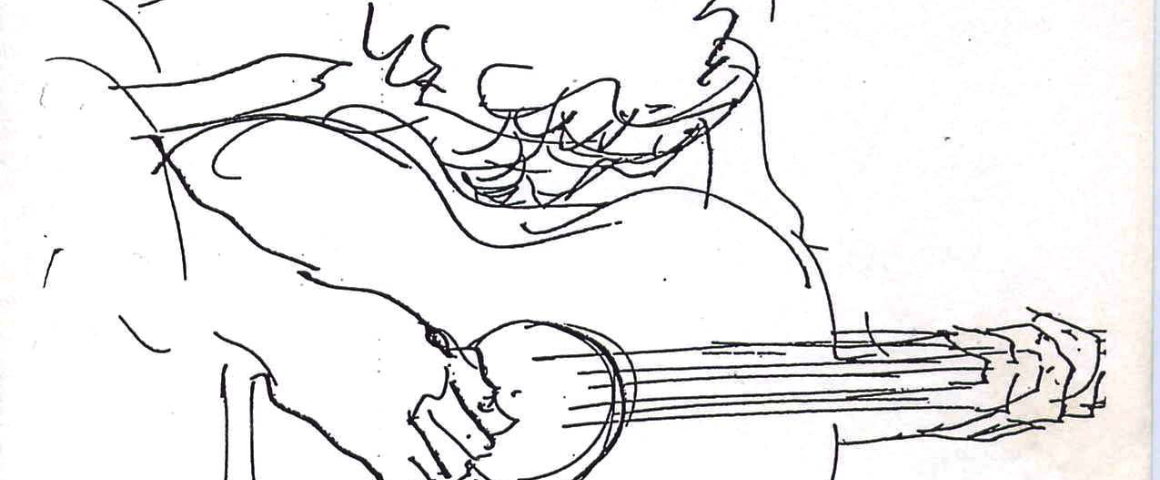Review by Dave McKee
Three years after the release of his first full book of poetry, The Other Life, Toronto-based Patrick Connors published his second collection, The Long Defeat in May this year.
Despite the negative-sounding title, The Long Defeat is nothing short of a win, both for the poet and for working-class culture in general.
Connors has been described – including by several of his published peers – as a “people’s poet.” Standing in the tradition of Milton Acorn and Joe Wallace, his is the voice of a working person, directed to working people around him – in his poetry, they share their dreams and disappointments, their struggles, their victories and their losses.
Readers of The Long Defeat will find Connors offering up his real-life interaction with the world around him, from the mundane (“Poutine”) to the profound (“Hope”). He shares these experiences on different levels: the personal (“Scars,” “After Four of Us Have Been Let Go” and the gut-wrenching “Ode to my Dad”), the spiritual (“The Path” and “Ecumenism”) and the political, which is the focus of this review.
Connors’ political poems – some of which have been published in People’s Voice over the years – are crucial to this collection. By sharing his personal record of enduring the trials of life in capitalist society, the poet invites us to contemplate our own experience alongside his, challenging us to co-create a broader narrative which moves from the individual, subjective level to an understanding of and engagement with collective, objective realities. But the political poems are a persistent reminder that the simple act of enduring is insufficient – in fact, that it is meaningless without a commitment and struggle to change the unjust circumstances around us.
So, in “Aphorisms of the CoronApocalypse” Connors writes:
When this siege ends
I know I will emerge with a greater vision.
I will be stronger and more capable
because waiting is not a passive exercise.
I will be clearer about my priorities.
I will live my life with more integrity.
I know we are fighting other plagues
which undermine the best we can be.
The poem “Good Brains” is an exploration of the “problematic quest for perfection” pursued (in very different ways) by noted civil rights lawyer and Black community activist Charles Roach – whom Connors refers to as “the greatest man I have ever known” – and musician Neil Peart. It concludes with this charge that seeking perfection includes working for justice:
I will follow my own vision of perfection –
or, at least as close to it as possible while
still a resident of this dimension.
If I can make this world a little better
transcend to what’s above while within it
Perhaps the most obviously political poem – and among the most powerful – in The Long Defeat is “Voices”, whose opening lines declare that there is no gap between the public and the private, the personal and the political:
The people speak power.
The revelation is being televised.
It fills your city streets
and it’s in your living room!
Part of a poet’s task is to challenge us about language, to think more deeply about the full meaning of words and how they are used or misused to deepen or narrow our knowledge. Connors takes up this challenge in “Voices” when he writes:
When the people shout:
“BLACK LIVES MATTER!”
of course they mean
every life matters.
His reference here to the trope “All lives matter,” which was used extensively to dismiss the BLM movement, will understandably draw a sharp intake of breath from many readers. But Connors then deconstructs the line thus:
But, if anyone has to say,
“We Matter!”, for this long
it means they are still being
treated like they don’t matter!
“Voices” ends with the appeal for us all to “collectively name the never-forgotten” and then specifically references Lester Donaldson, Trayvon Martin and Breonna Taylor. By naming Black people who have been killed by racist violence, including by police, in both the US and Canada over the past 35 years, Connors leaves us sitting, in appropriate discomfort, next to the long and ongoing history of anti-Black violence and the struggle against it.
His parting comment, that we must “not let it happen again,” asks us to make the choice to act.
****
The Long Defeat
Poems by Patrick Connors
Mosaic Press (2024)
Support working-class media!
If you found this article useful, please consider donating to People’s Voice or purchasing a subscription so that you get every issue of Canada’s leading socialist publication delivered to your door or inbox!
For over 100 years, we have been 100% reader-supported, with no corporate or government funding.




